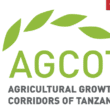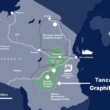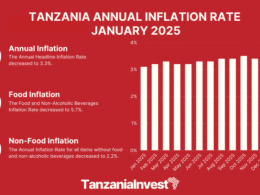In this article, Advocate Ayoub Mtafya shares some of his experience on immigration-related issues for investors coming to Tanzania and highlights four of the most common challenges they face when entering the country.
In this article I wish to share with you my experience on some of the immigration-related challenges which foreign investors are facing in Tanzania, these challenges are real and are affecting investors’ business. I will mention only a few challenges.
The first challenge is the delay in issuance of the residence or work permit. The law on this aspect is point blank – it is mandatory for a foreigner to have a residence permit to be able to work in Tanzania.
The investor may register an entity and get a trading license within one month but it may take between two to six months to get a work permit.
The Government has a goal of processing permit applications within four weeks (one month), that is two weeks at the Labour Department and two weeks at the Immigration Department, but it is very rare to get a work permit within one month.
This goal is much more honored in breach than in compliance. I understand that some delays are on account of incomplete applications but in most cases, even complete applications are not processed in time.
At this juncture, it is worth noting that it is also a challenge to have a complete application because the requirements are not that certain and consistent.
There are written and unwritten requirements – this presents a very big predicament to investors and agents who are processing permits on their behalf.
The second challenge is based on the coverage/scope of the permits that are issued to applicants.
The permits specify the area or region covered by the permit. For example, it is common for the permit to mention that the holder is allowed to work in Mbeya, Dar es Salaam, and Arusha.
In such cases, if the holder of a permit is found working in another place other than the one specified in the permit, he will be arrested.
This is a challenge because you may find an investor whose business operations connect several regions in Tanzania.
In such cases, how can a foreigner supervise or oversee sales in the regions not named in the permit? Audit firms that have to audit their clients who are all over the country are also greatly affected by this condition.
I understand there is a possibility of requesting the Immigration Department to ask for more regions, but this too is cumbersome as it may take a considerable period of time to get it done. Personally, I do not understand the rationale of this requirement.
The third and probably disturbing challenge is the requirement for holders of work permits to hold their permits wherever they are.
I tend to believe that this requirement has been imposed by ‘small’ immigration officers for their own purposes.
It is hard to say it is a requirement because when it comes to immigration, there are a lot of unwritten rules.
One of my clients got arrested and remanded for a night after being asked to produce his work permit which he was not holding at the time, the following day after producing a valid permit he was released.
This reminded me of what I was taught in primary school about ‘Kipande System’ which is said to be one of the causes of Mau Mau war in Kenya.
Kipande was an identity document that had personal details and the employment history of the holder. Under the Native Registration Amendment Ordinance of 1920, it was compulsory for African males above the age of 15 to wear it (Kipande) around their necks.
Imagine carrying a document called permit daily whether in your pocket or a handbag or anywhere, how will it be? If indeed this is an indispensable requirement, it could have been reasonable for the immigration officer to ask my client to produce the permit within say 48 hours rather than remanding him.
The fourth challenge is that some Tanzania citizens use immigration officers to cover their wrongdoing by harassing foreign nationals on the pretense that a particular foreigner has no valid work permit.
And here there are many cases, ranging from businesses gone soar, personal relationships, business rivalry, and rogue staff looking for an easy escape route.
In conclusion, I can say while addressing problems affecting the business community, particularly foreign investors, immigration challenges should also be high on the agenda.
We note that the challenges shown above reveal that the problems highlighted above have more to do with the personalities and behavior of persons involved in the immigration tango than with the law.
There is therefore no gainsaying in pleading with the stakeholders to act professionally and lawfully, and to ensure that complaints regarding immigration issues are properly scrutinized for the presence of malice or ill will.
Business persons and others generally are also advised not to misuse and use the immigration office to solve their business or personal disputes.










